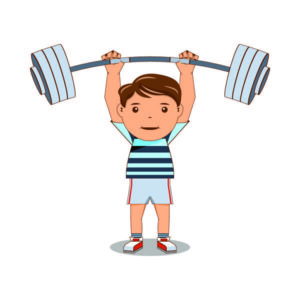7 Causes of Migraine and Dizziness: Dizziness and migraines often seem to go hand-in-hand. Dizziness is most typically defined by feeling lightheaded, unbalanced, and faint. As you know, migraines are far more severe than typical tension-type headaches. They are characterized by recurrent, throbbing pain that starts on one side of the head, and are often accompanied by nausea and blurred vision. They can last anywhere from a few hours to several days. There are several causes of dizziness and migraines, so it is important to be aware of them.
What Causes Migraines and Dizziness?
Migraines and dizziness often occur simultaneously and can be the result of several things. Unfortunately, some people are genetically predisposed to migraines. Below are some factors can trigger them.
Fluctuations in Hormones
Estrogen and progesterone fluctuate during menstruation, pregnancy, and menopause, and these hormonal fluctuations can cause migraines and dizziness, as well as other frustrating symptoms.
Concussion
Not something we often think of in terms of migraine triggers, but major head injuries can have lasting effects even months after the accident or incident. This includes dizzy spells, migraines, and nausea. Having worked with attorneys for many years, I have seen first-hand that this is all too common with people who have been involved in a car accident or some other type of accident. In this instance, it is important to see a doctor to make sure that there is no additional swelling or serious concerns.
 Heavy Lifting
Heavy Lifting
Funny as it may sound, heavy lifting and other strenuous activity can cause light-headedness and dizziness. When you are engaging in any kind of strenuous activities, including heavy lifting, it is important to stay hydrated and take frequent breaks.
Blood Pressure
If you have a sudden drop in blood pressure, it can cause dizziness, light-headedness, and even fainting. This is typically caused by standing up too quickly or after eating a big meal. On the other hand, if your blood pressure becomes too high, it can result in a pounding headache, which often triggers a migraine.
 Stress
Stress
Stress is one of the leading causes of headaches, anxiety, and many other health conditions. Letting stress build up – whether at work or at home – is a definite migraine trigger and can also lead to dizziness. It is important to learn ways to manage stress. Some great ways to do this would include yoga, meditation, a night time bath, reading, or listening to soothing music.
Skipping Meals
Blood sugar levels drop sharply when you skip meals, which often leads to headaches and dizziness. It is really important to eat healthy, balanced meals and snacks every three to four hours to stay alert and prevent these symptoms.
 Lack of Sleep
Lack of Sleep
Getting enough sleep every night is essential to feeling your best and for maintaining overall health. Lack of sleep is a common cause of migraines and headaches. As an adult, you should get between seven to eight hours of sleep every night. It’s important to keep a regular schedule with your sleep – and it is also helpful to keep those sleep patterns regular even on weekends when you may have a tendency to want to stay up late or sleep in late.
Dizziness, in some people, is a common symptom of migraine, so if you are feeling a migraine or dizzy spell coming on, it is important to drink plenty of water, lie down for a while, and either use some natural remedies you know work for you, or when necessary, take pain medication as prescribed.
In my book, “The Ultimate Migraine Handbook,” I go into more detail about migraine triggers and some effective natural remedies to help prevent and relieve pain associated with migraines. Click below for more information on my migraine relief book.

DISCLAIMER: Neither Holistic Health & Wellness, LLC nor Lynne Wadsworth are acting in the capacity of a doctor, licensed dietician-nutritionist, psychologist or other licensed or registered professional. Any advice given by Holistic Health & Wellness, LLC or Lynne Wadsworth is not meant to take the place of advice by these professionals. If you are under the care of a healthcare professional or currently use prescription medications, you should discuss any dietary changes or use of dietary supplements with your doctor, and should not discontinue any prescription medications without first consulting your doctor.


